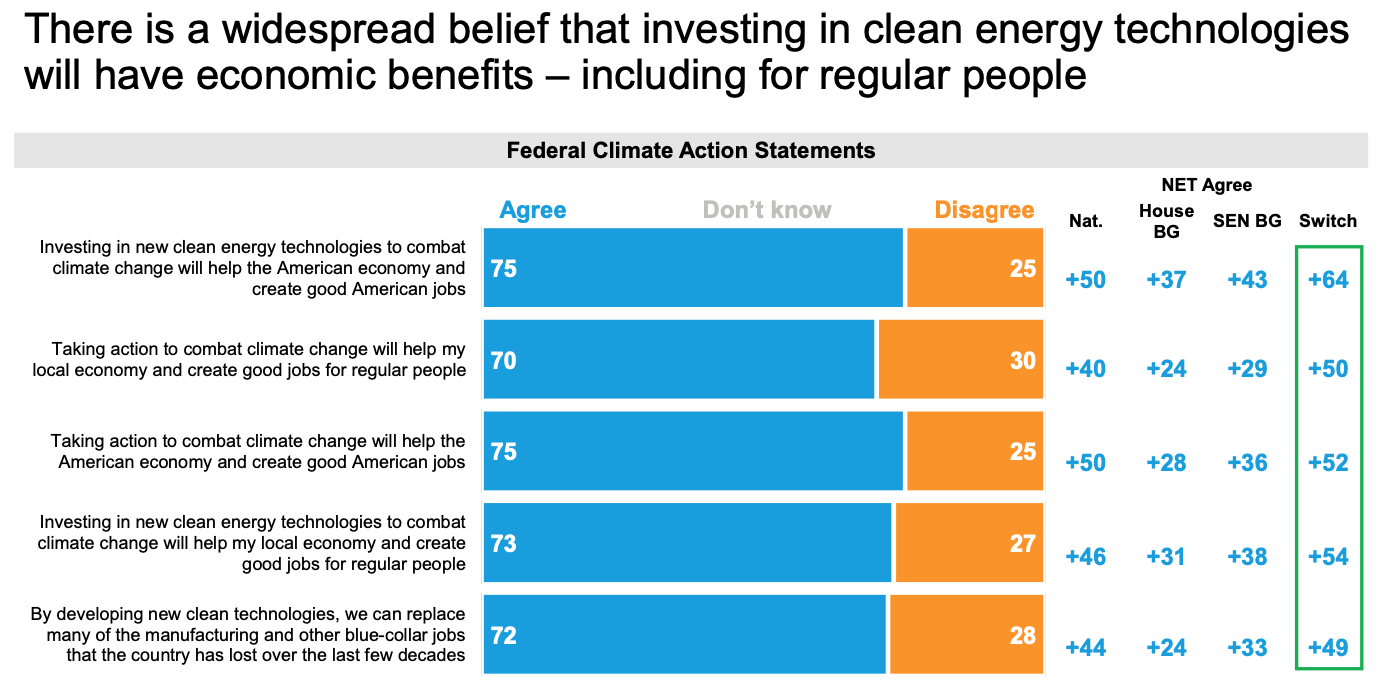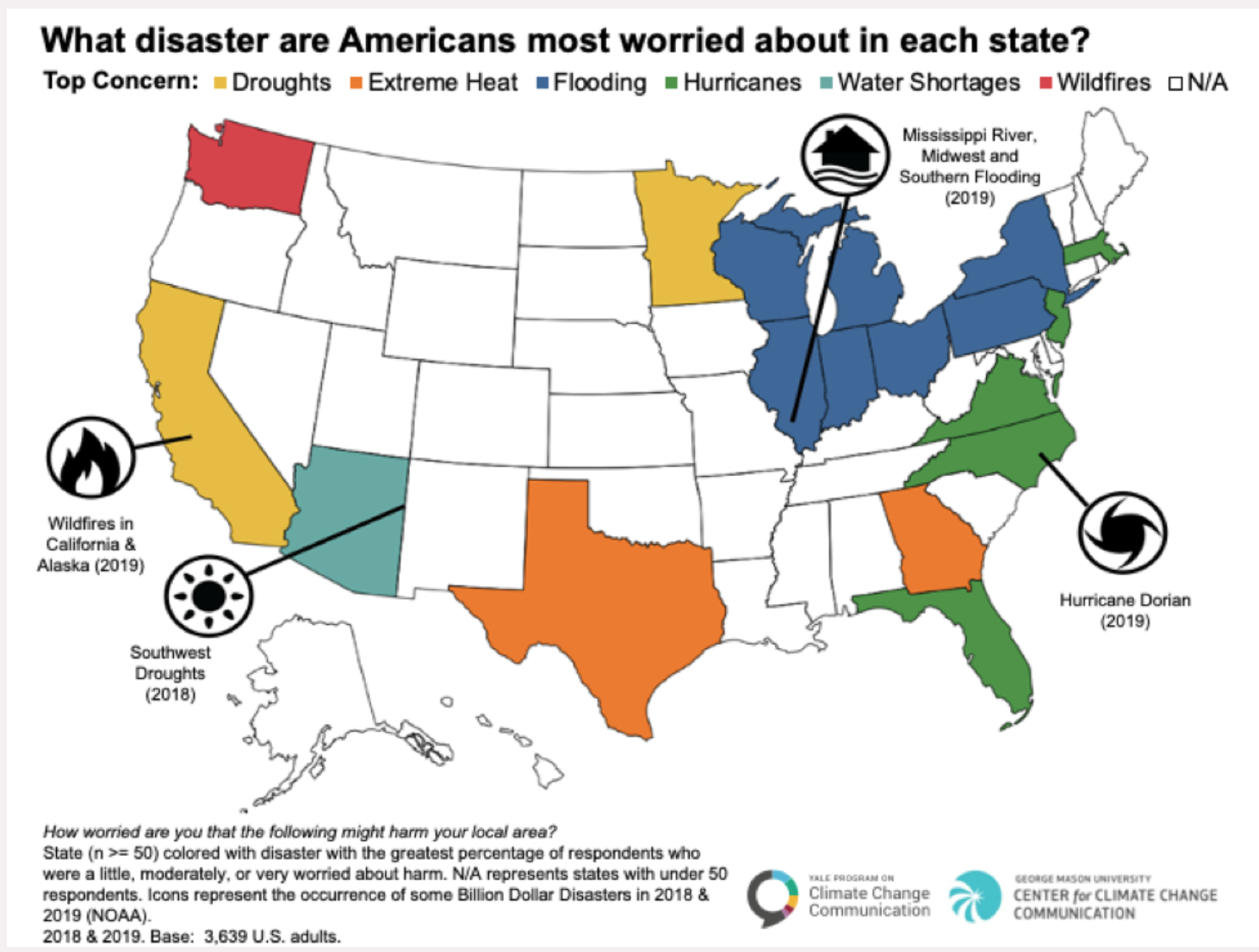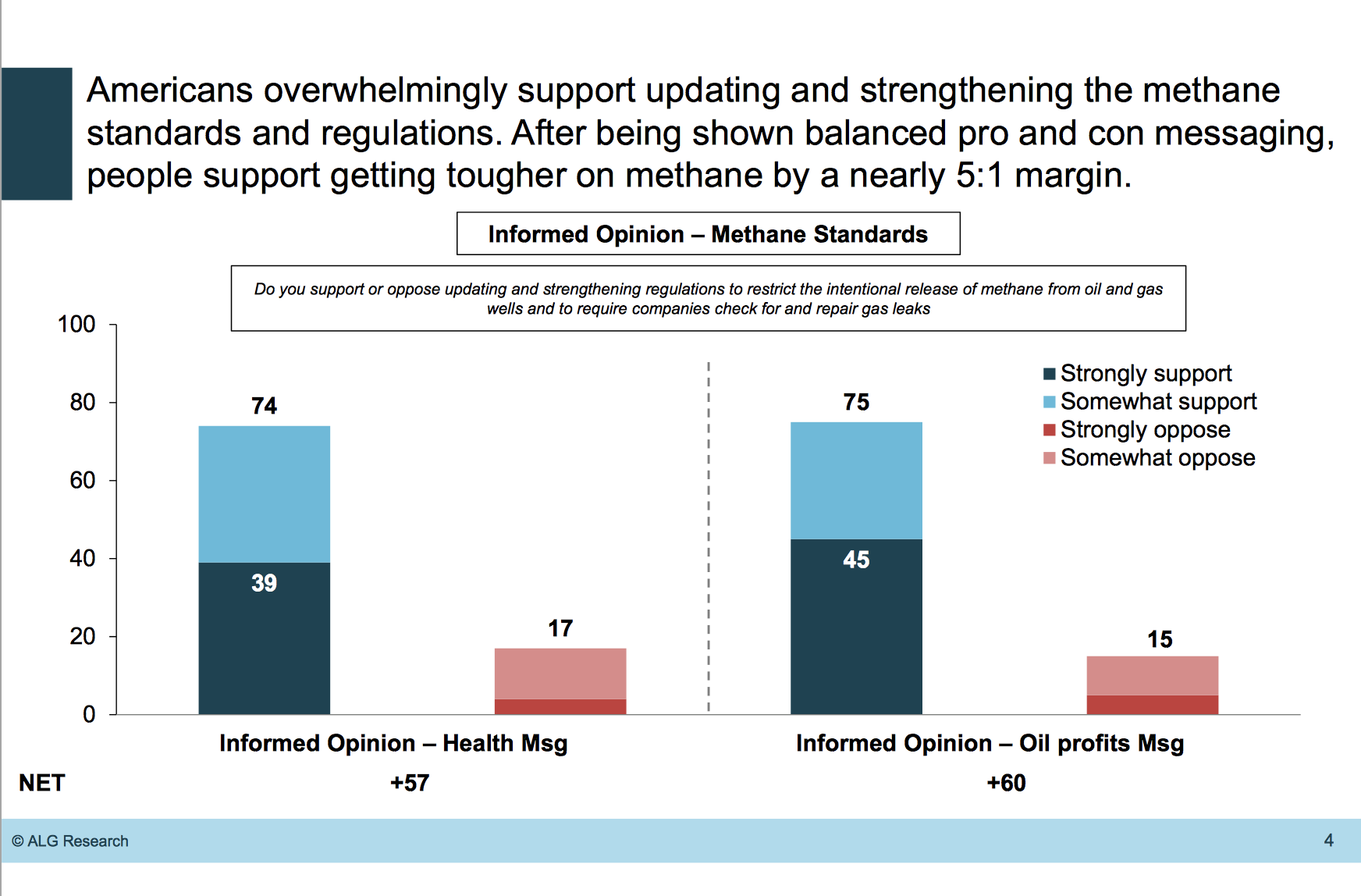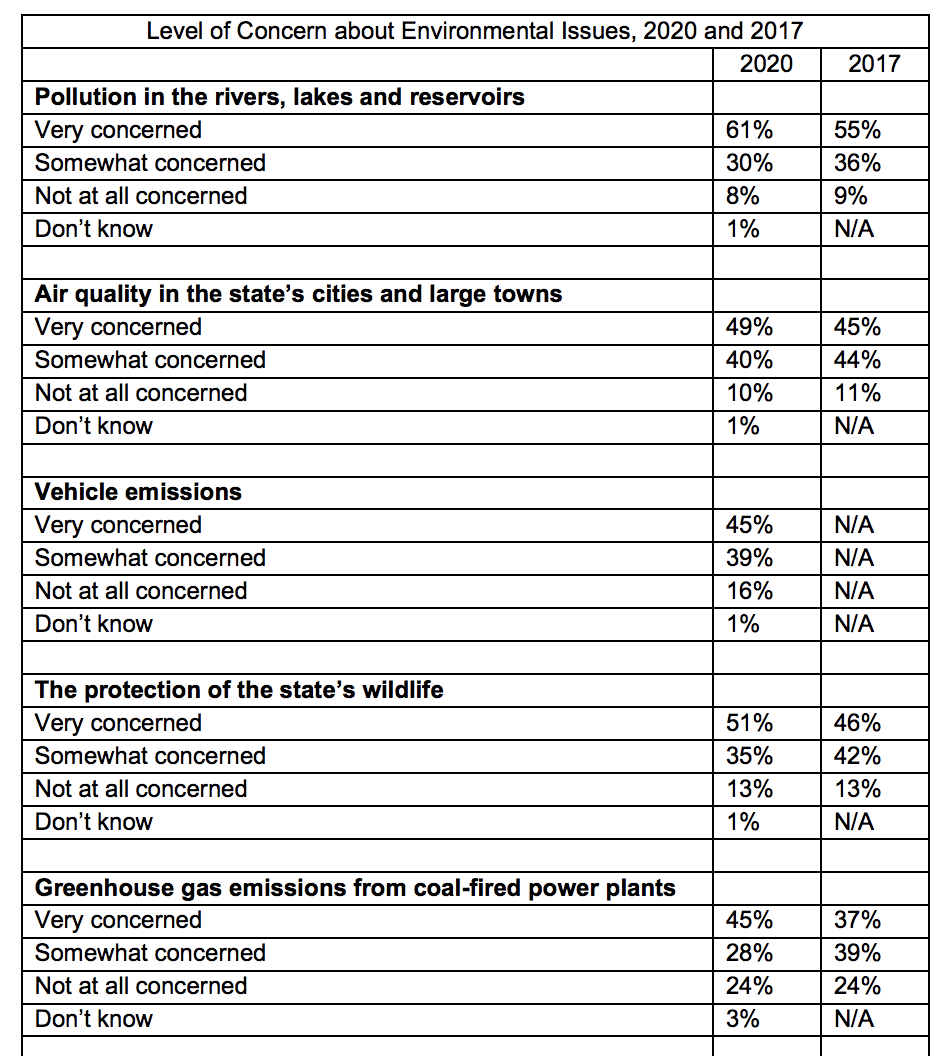Resources
Search below for resources covering the intersection of climate engagement, social science and data analytics.
RESULTS
Poll: Investing in American Clean Energy to Build the Industries of the Future
Key findings of a survey (phone and online) of US voters, with oversamples in key states include:
- Voters across the political spectrum overwhelmingly support government investments in clean energy technologies in order to rebuild the economy (77%), create good jobs (76%), and eliminate the carbon emissions that cause climate change (75%).
- There's a widespread belief (75%) that investing in clean energy technologies will have economic benefits – including for "regular people."
- And also that by developing new clean technologies, we can replace many of the manufacturing and other blue-collar jobs that the country has lost over the last few decades (72%)
- Strong support for various approaches to boost and develop specific clean energy technologies such as clean steel and cement, clean jet fuels, and energy storage and transmission.
- Voters support investing $75 billion in clean energy tech RD&D as part of the upcoming infrastructure bill.
How does the American public perceive climate disasters?
Different parts of the country see various kinds of extreme weather as most concerning, perceptions which are largely in line with actual major disasters that have occurred in those regions. This report provides concern profiles for the 18 largest states, drawing on survey data from 2018 and 2019. Over half of Americans see such extreme weather events posting a high or moderate risk to their community in the coming decade, and two thirds see a climate link to US weather (though only a third think climate affects our weather "a lot").
Poll: Public backs strong limits on methane pollution
Americans overwhelmingly support updating and strengthening the methane standards and regulations. Even after being shown balanced pro and con messaging, people support touger methane regulations by a nearly 5:1 margin. Curtailing leaks and releases of methane has broad support across all major demographics, including 2-to-1 support among Republicans.
Poll: Arizonans are growing more concerned about climate change
- Arizona voters are as interested or more interested in and concerned about the environment in 2020 as they were in 2017 -- including attitudes toward and opinions about wildlife, land use, rivers and streams, global warming, preservation of water, air and water quality, and government spending on and attention to the environment.
- Voters use print newspapers and television less and less as their primary sources for information about the environment. Electronic sources and social media are more and more critical to information distribution, a pattern that has been apparent for nearly two decades. Further, this pattern is persistent among 18- to 64year-olds, with many of those 65 and older still relying on television and, to a lesser degree, newspapers, although they also tap into online sources.
- Water pollution ranks as Arizonans’ top environmental concern; 61% of voters surveyed said they are “very concerned” about pollution in the state’s rivers, lakes and reservoirs.
- When respondents were given the choice between protecting the natural environment and economic growth, 64% said they believe “protecting the environment should be given priority, even at the risk of slowing economic growth.”
- The climate change debate in Arizona largely remains a partisan one: 77% of Democrats and 58% of Independents “strongly agree” the federal government needs to do more to combat climate change, vs just 19% of Republicans “strongly agree” with that statement.
Solar with Justice
Under-resourced communities face a disproportionate share of societal burdens and lack access to many of the benefits other communities enjoy. Participation in the solar economy can help ease these burdens and provide low-and middle-income households with economic relief.
Attitudes and Opinions About Environmental Issues in Arizona
Battleground Millennial Survey
75% of millennials say they would be more likely to vote for a candidate who wants to transition the U.S. from fossil fuels to clean energy, but 44% of millennials do not see a difference between Clinton and Trump on this issue. 44% also prefer Clinton’s views on transitioning to clean energy; only 12% prefer Trump’s.
Pagination
- Previous page
- Page 3



